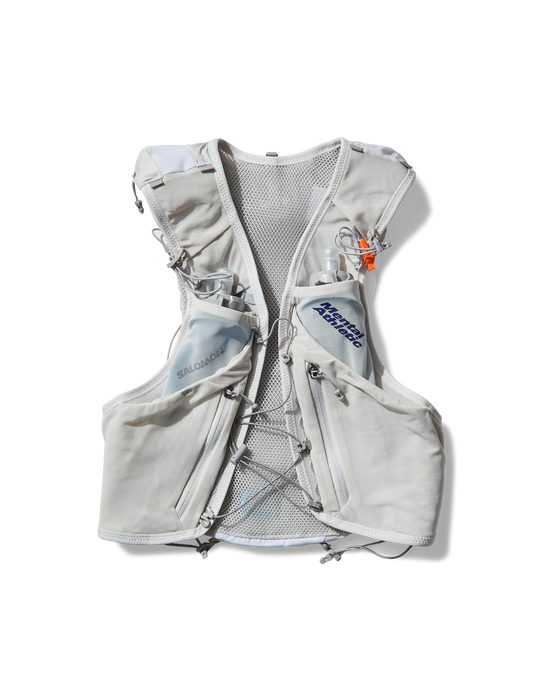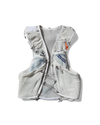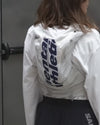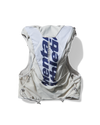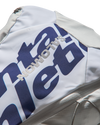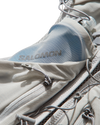écal x NNormal exhibition hosted by Mental Athletic

Mental Athletic’s survey on art and contemporary culture continues in occasion of the presentation of the magazine produced during the “Commission & Photography” course at ECAL with the support of NNormal.
We met the course professor Nicolas Poillot for a conversation about visual culture, storytelling and education.

Achille Filipponi: Following your work since the beginning at Études Studio, I always perceived you as an independent author and a strong visual language producer. I’m interested in what you think about how everything has changed in contemporary photography during the last ten/fifteen years, after the photo book golden age. Is this a question about visual narrative in the digital era?
Nicolas Poillot: Indeed, the last years have seen changes in contemporary photography, especially following the so-called “golden age” of the photobook. Although the photobook remains a powerful medium for visual storytelling, the digital age has transformed the way stories are created and experienced.
Today, the question is very much about visual narrative, but it’s evolving. Digital platforms offer immediacy, interactivity, and fluidity that challenge traditional linear storytelling. The visual language has become more fragmented, nonlinear, sometimes ephemeral, reflecting the fast pace and multiplicity of contemporary life.

At the same time, this shift opens up new possibilities for creativity and connection. It pushes photographers, authors, brands, to rethink how they construct meaning, how they engage audiences, and how they balance permanence and transience.
So yes, it is a question of visual narrative, but one that’s constantly being rewritten by technological and cultural changes.

AF: Contemporary photography’s education is going beyond technical instructions, it’s more about critical thinking, visual literacy, and personal expression. I would say that the educational side of your career is really important in your creative path; what do you think of this shift and how do you deal with this kind of mutation?
NP: I completely agree with that idea.
Today, teaching or sharing photography can no longer be limited to technical aspects. We’re facing a generation that deeply questions the meaning of images, their impact, how they circulate, and especially their connection to personal and collective identity.
In my own journey, this educational dimension has pushed me to reflect on my practice, to enrich it, and to let it evolve.
It forces me to stay curious, to constantly reframe what I think I know, and to create spaces for dialogue.
I see this shift as an opportunity, a chance to step away from my "comfort zone“ or the visual language of an industry, and move toward a more collaborative construction of knowledge, where every exchange becomes creative material and an inspiration.

AF: What do you think about contemporary publishing in photography and photographic series production?
NP: Contemporary publishing in photography has become both an exciting platform and a complex terrain.
On one hand, it offers incredible opportunities for photographers to present their work in innovative formats and reach diverse audiences beyond traditional galleries and institutions. Photographic series production, in particular, allows for storytelling with depth and nuance, inviting viewers into a sustained dialogue rather than a single glance.
On the other hand, the sheer volume and speed of publishing today can sometimes risk overwhelming the work itself, making it harder for singular voices to emerge distinctly. There’s also a challenge in balancing artistic integrity with market demands and trends.
For me, the key lies in thoughtful curation and a commitment to projects that reflect a coherent vision.
It’s about resisting the temptation to produce just to produce, and instead fostering meaningful narratives that push the medium forward.

NP: In a student’s creative life there’s a balance to preserve between personal experience and conceptual approach. Do you feel a kind of flattening in the portfolio production? And how would you fight this?
AF: Yes, I do feel there’s often a kind of flattening, not always in intention, but in form.
The portfolio can sometimes become a coded object, almost like a product. And in that process, something essential can get lost: the cracks, the contradictions, the rawness that come from lived experience.
To counter that, I think we need to reintroduce a sense of risk and ambiguity in how students shape their narratives.
Encourage them to embrace the unresolved, the uncertain - to see the portfolio not just as a final destination, but as an evolving reflection of who they are becoming.
Also, slowing down is key. Taking time to ask: Why am I doing this? What does this really say about me, about the world I want to engage with?
That kind of reflection can bring back depth and tension and preserve the uniqueness of each creative journey, and above all their personalities.

AF: How do you feel about peer to peer education and do you think there’s a sort of hierarchy in teaching practices?
NP: As for me, I see myself more as a guest contributor than a full-time teacher, someone who steps in occasionally, and whose involvement is rooted in practice rather than academia. So I’ll speak here only from that perspective.
I don’t approach this role with any desire to establish a hierarchy.
Of course, there needs to be a framework, some boundaries to create structure, but I don’t see myself as being “above” the students in any way.
I bring them my expertise, shaped by years of experience, but I also receive a lot in return - through their energy, their personalities, the way they think and create, and the conversations we share, whether it's about social issues, emerging creative voices they introduce me to, or simply their unique perspectives.
In the end, I’d say it’s above all a two-way exchange between people, driven by mutual curiosity, where knowledge and experience are shared freely and organically.

AF: Do you think that education can keep the peculiarities of a student alive, fighting against the hyper-fast images fruition on social media?
NP: Absolutely, or at least, I believe it should.
Education has the potential to nurture what makes each student unique, but it requires intention and care.
In a world of constant image overload and hyper-speed content, especially on social media, it’s easy for individuality to get flattened by trends and algorithms. That’s why educational spaces must become places where time is reclaimed, where students are encouraged to slow down, reflect, and understand why they create, not just how.
It’s also about building a dialogue, not just delivering knowledge.
When students feel seen, when they’re invited to bring their world, their contradictions, their rawness into the process, then education becomes a space where singularity can still thrive.

AF: How's everything going with everything? I’m interested in your current productions, books, zines, exhibitions… is there something in the near future?
NP: This year is a transitional one, I would say, in the sense that I’ve decided to take a bit more time for myself and refocus my practice. Even though it has always had a multidisciplinary application, I feel the need to specialize further in certain areas, even if that means putting some aspects on hold for a while.
I’m currently in talks with some sports/outdoor brands regarding the visual positioning of the sector, which is quite interesting, relevant, and challenging.
Alongside this, I’m in constant discussion with photographers, image-makers - a practice that is part of my daily routine - in order to nourish both my work and my network.
Of course, I have a few book and exhibition projects in the works, but I intend to be more selective moving forward, to focus on projects that truly make sense to me… Stay tuned!
Finally, I would like to extend my special thanks to Milo Keller – ECAL, Head of Photography – for the trust he has placed in me over the years and the freedom of action I’ve been given in my teaching role.
Many thanks as well to Régis Tosetti and Kilian Jornet at Nnormal for their trust in this collaboration.
And above all, heartfelt thanks to the Bachelor Photography students from this graduating class, for their remarkable work and determination. It was a true pleasure to support and accompany them throughout this project.

Nicolas Poillot is a creative and image director specializing in contemporary photography, based between Marseille and Paris.
His work ranges from commissions and branding projects, image consultancy, as well as editorial design to book production and curating.
Striking a balance between documentary and fashion photography, with sometimes more abstract visual approaches, Nicolas Poillot's aesthetic is a testament to his expertise as an art director.
Nicolas also teaches bachelor photography at the renowned Ecal - university of art and design - in Lausanne, Switzerland.
